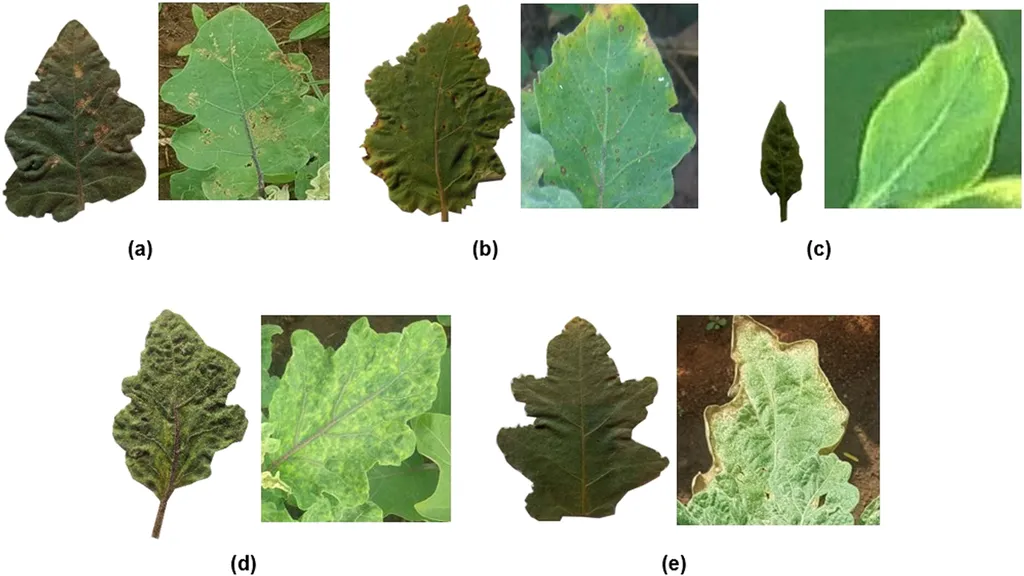In the heart of Bangladesh, a groundbreaking initiative is set to revolutionize how we combat eggplant leaf diseases, a critical threat to global agriculture. Led by Md. Asraful Sharker Nirob from the Health Informatics Research Lab at Daffodil International University, a comprehensive dataset has been developed to train machine learning models for accurate disease detection. This dataset, published in *Data in Brief* (which translates to “Short Data”), is poised to transform precision agriculture and sustainable farming practices.
Eggplant, a staple crop worldwide, faces numerous diseases that can devastate yields. Traditional methods of disease identification are often time-consuming and prone to human error. Nirob’s dataset, comprising 3,116 high-resolution images captured from two major agricultural regions in Bangladesh, aims to address these challenges head-on. “Our goal was to create a robust dataset that represents real-world conditions,” Nirob explains. “By including 10 distinct disease classes, we’ve provided a comprehensive resource for researchers and farmers alike.”
The dataset’s utility is further enhanced through rigorous data augmentation techniques, expanding it to 10,000 images. This ensures the robustness necessary for machine learning applications. Expert annotations add another layer of precision, offering critical insights for accurate disease classification. “The annotations are crucial,” Nirob notes. “They provide the detailed information needed to train models effectively.”
The impact of this research extends beyond the fields of Bangladesh. By enabling AI-powered early disease detection, automated monitoring, and decision support, the dataset and associated models can significantly improve crop productivity and food security. “This technology can reduce the need for manual inspection and allow for timely interventions,” Nirob says. “It’s a game-changer for sustainable farming.”
The proposed CBAM–EfficientNetB0 model, developed by Nirob and his team, has demonstrated remarkable accuracy. With a classification accuracy of 98.70%, it outperforms baseline architectures like ResNet50, VGG16, and VGG19. This model’s success highlights the potential of combining channel and spatial attention through CBAM with EfficientNetB0’s feature extraction abilities. “The model’s performance shows that it can effectively identify distinguishing features in eggplant leaf images,” Nirob explains. “This accuracy is crucial for reliable disease detection.”
As the world grapples with the challenges of climate change and food security, innovations like Nirob’s dataset and model offer a beacon of hope. By leveraging the power of machine learning and data augmentation, farmers can adopt more sustainable practices and protect their crops from devastating diseases. “This research is just the beginning,” Nirob concludes. “We hope it will inspire further advancements in precision agriculture and contribute to a more secure food future.”
The publication of this dataset in *Data in Brief* marks a significant milestone in the field of agricultural technology. As researchers and farmers continue to explore its potential, the impact of this work is likely to ripple across the globe, shaping the future of sustainable farming and food security.

